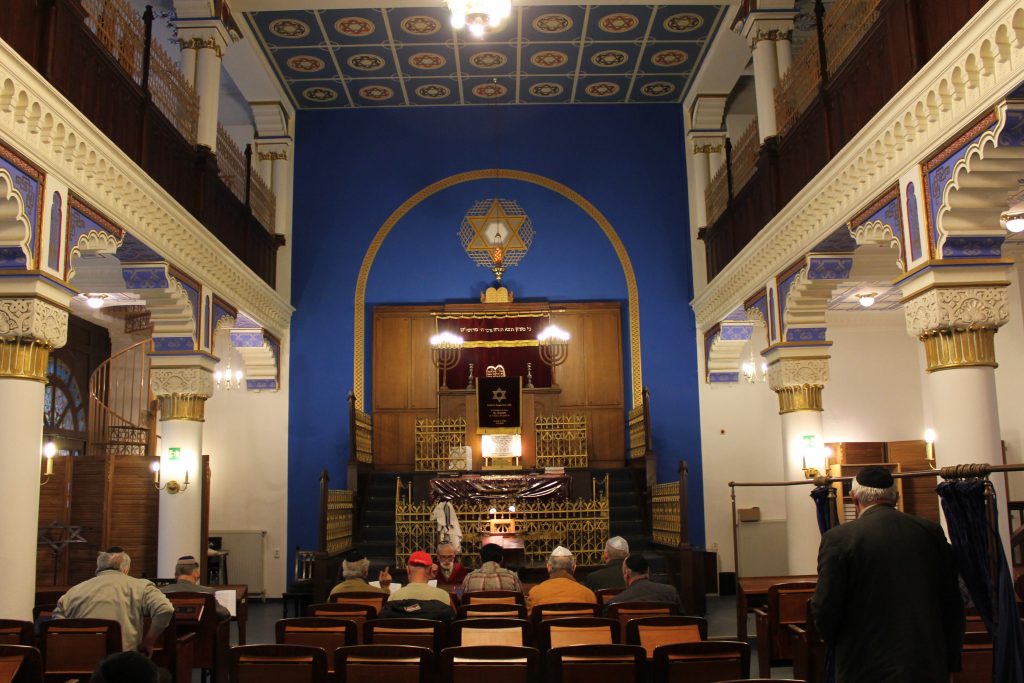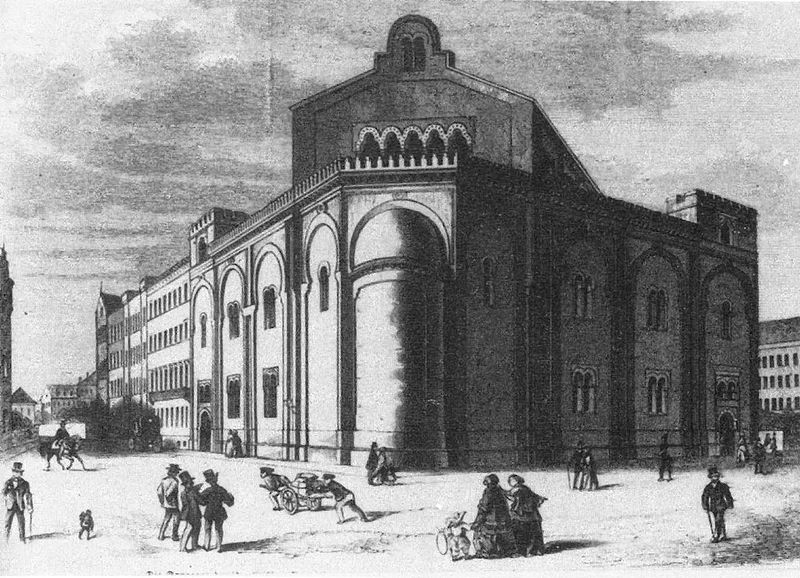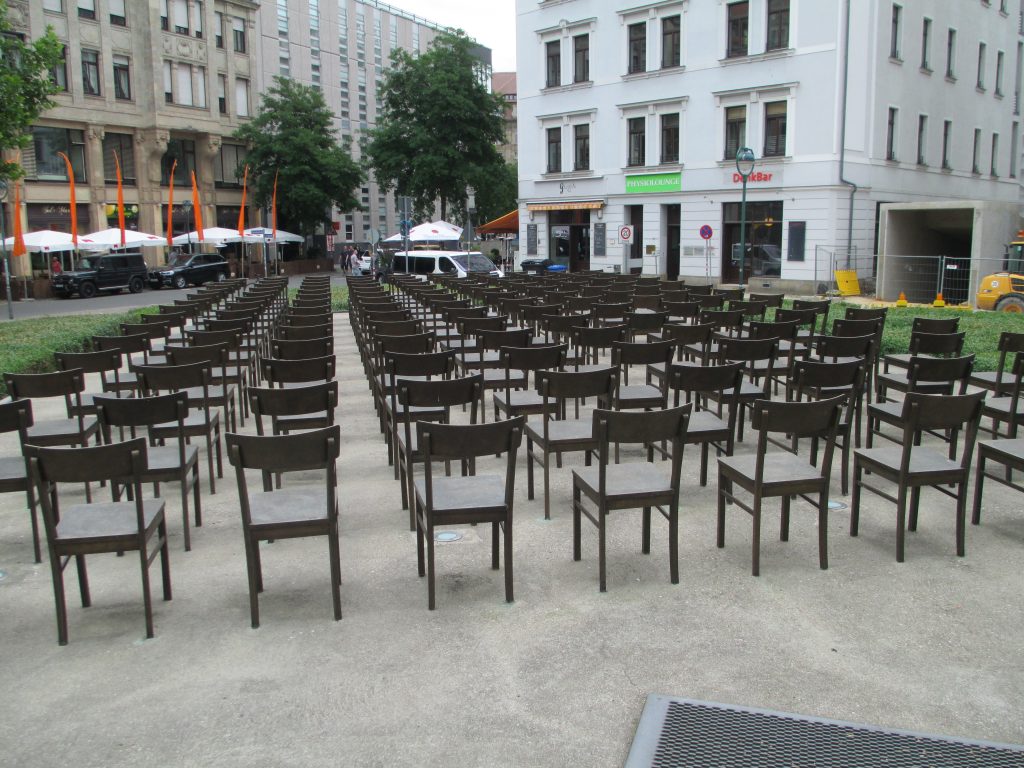A Jewish community is first mentioned in Leipzig at the end of the 12th century; and an organized community with a synagogue and a school existed from the second quarter of the 13th century.
Its central location attracted Jewish traders from all over Europe to the Trade Fair. The fair regulations of Leipzig of 1268 guaranteed protection to all merchants and moved the day of the market from Saturday to Friday for the benefit of the Jewish merchants.

A late development
A permanent Jewish settlement was founded in 1710. The number of “privileged” Jewish households allowed residence in Leipzig grew to seven by the middle of the 18th century. However, the Jewish community as an officially state-recognised organisation was established only in 1847 and only by then Jews were allowed to settle in Leipzig without any restrictions. After 1869, with the abolition of all anti-Jewish restrictions, the number of Jews increased greatly by immigration from Galicia and Poland.
Though most Jews were traveling merchants, in 1935 – less than a century after its establishment – the Jewish community in Leipzig consisted of 11,564 members, making it the sixth-largest Jewish community in Germany and the largest one in Saxony. The city’s mayor from 1930 to 1937, Carl Friedrich Goerdeler, although being national-conservative, was a noted opponent of the Nazi regime in Germany. He resigned in 1937 when, in his absence, his Nazi deputy ordered the destruction of the city’s statue of Felix Mendelssohn.
On Kristallnacht in 1938, 553 Jewish men were arrested, centres of Jewish communal life were destroyed, as well as one of the city’s most architecturally significant buildings, the 1855 Moorish Revival Leipzig synagogue. The deportations from Leipzig began on January 21, 1942, until February 13th 1945, when the last 220 Jews were deported to Theresienstadt. By 1945, there were only 15 Jews remaining in the city at which point 200 came back from Theresienstadt to form the Jewish community once again. In 1989, the community numbered 30 members, but as a result of the immigration from the former Soviet Union, it began to grow. In 2012, the Jewish community numbered 1300 members.
In 2010, two rabbis were ordained in Leipzig in a ceremony held in a small synagogue in the city. It marks the growth of the Jewish community, especially thanks to the arrival of Jews from Eastern Europe since the reunification.
The Brody synagogue
A small synagogue in 1897, which was enlarged into a two-story building in 1933; the prayer hall was on the first floor, and the second floor housed a library and study rooms. On Pogrom Night, November 1938, the windows of the synagogue were smashed and its interior was destroyed. Out of concern for the safety of neighboring homes, the synagogue was not set on fire.

In early 1939, the Nazis, wanting to convince the world of their tolerance, forced the Jewish community to refurbish the synagogue in time for the upcoming Leipzig fair. Shortly afterwards, they repossessed the building and used it as a soap factory. The building was returned to the Jewish community in 1945, after which it was once again used as a synagogue. In 1993, both the interior and exterior of the synagogue were restored.
Today, Leipzig has the most active Jewish community in Central Germany. As a matter of fact, the Brody synagogue holds the only daily Minyan in the region.
Cemeteries
In Leipzig there are two Jewish cemeteries. The new cemetery has been used since 1927. In April 1972, construction began for the renewal of the celebration hall, together with the refurbishment of the religious-ritual space. The old cemetery is located on Berliner Straße.
The Holocaust memorial
On the site of the Moorish synagogue stands today the Holocaust memorial. This powerful installation is made of 140 empty bronze chairs, representing the 14.000 Jews who once prayed there and outlining the floor plan of the destroyed synagogue.

The Jewish community today
A community center holds conferences and activities. In 2006, a mikveh was opened at the same address.
In 2010, two rabbis were ordained in Leipzig at a ceremony held in a small synagogue in the city. It marks the growth of the Jewish community, thanks in particular to the arrival of Jews from Eastern Europe since reunification. The community had 12,000 members before the war, only 30 after the fall of the Berlin Wall in 1989 and almost 1,300 in 2010.